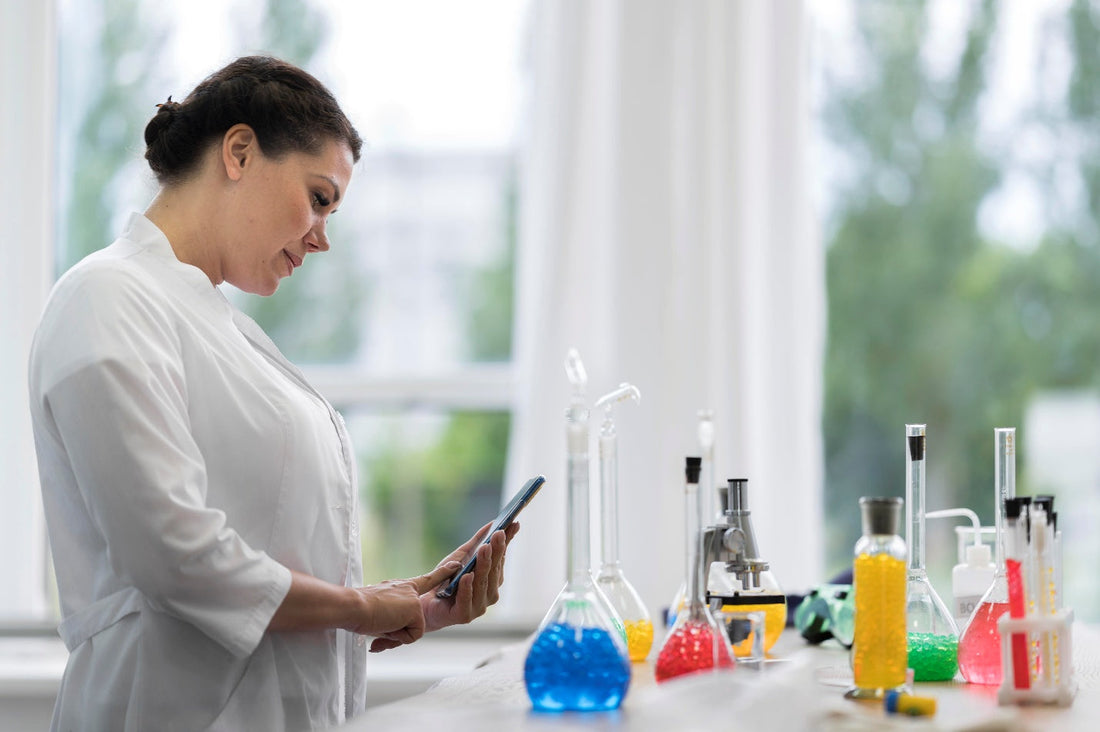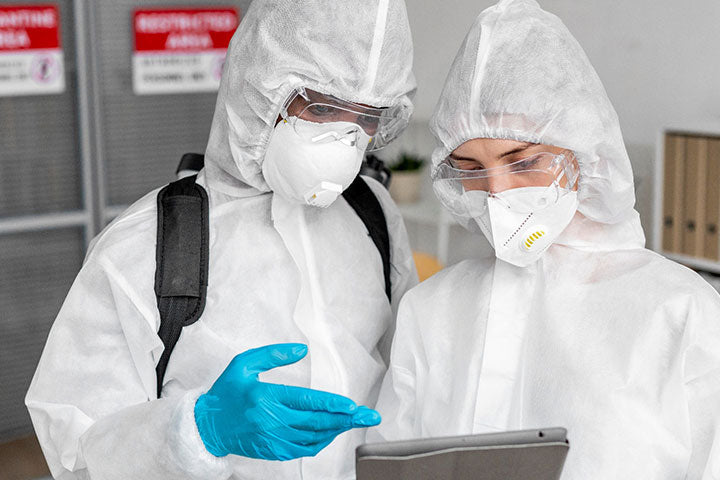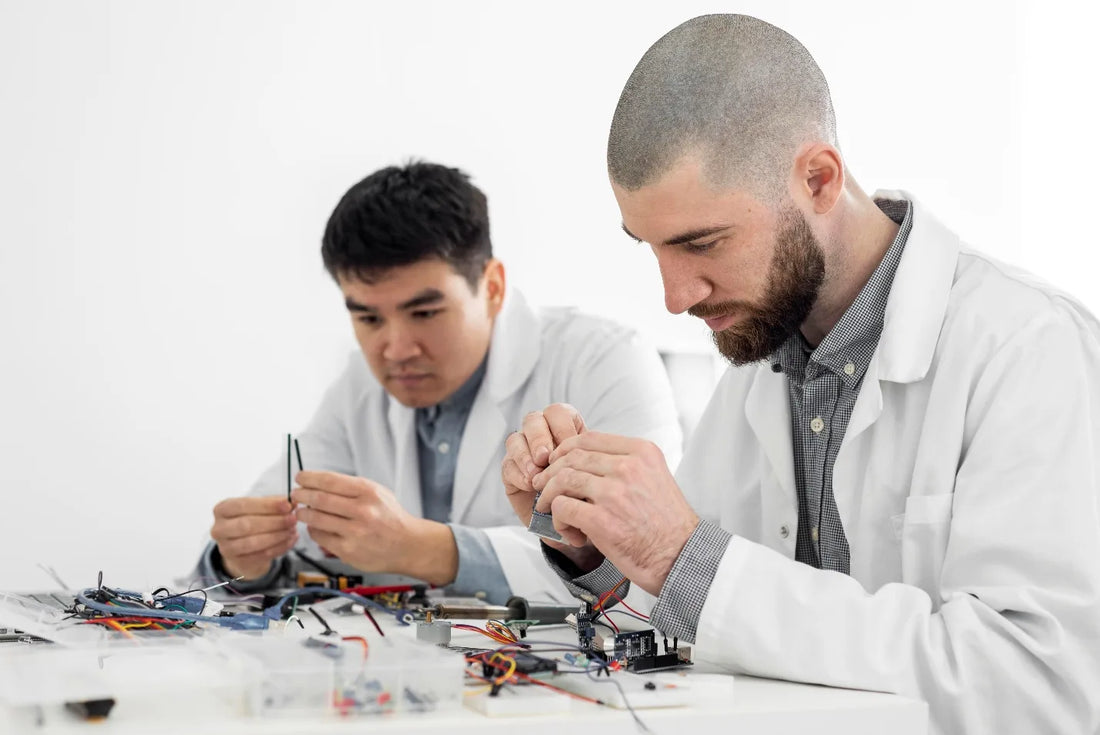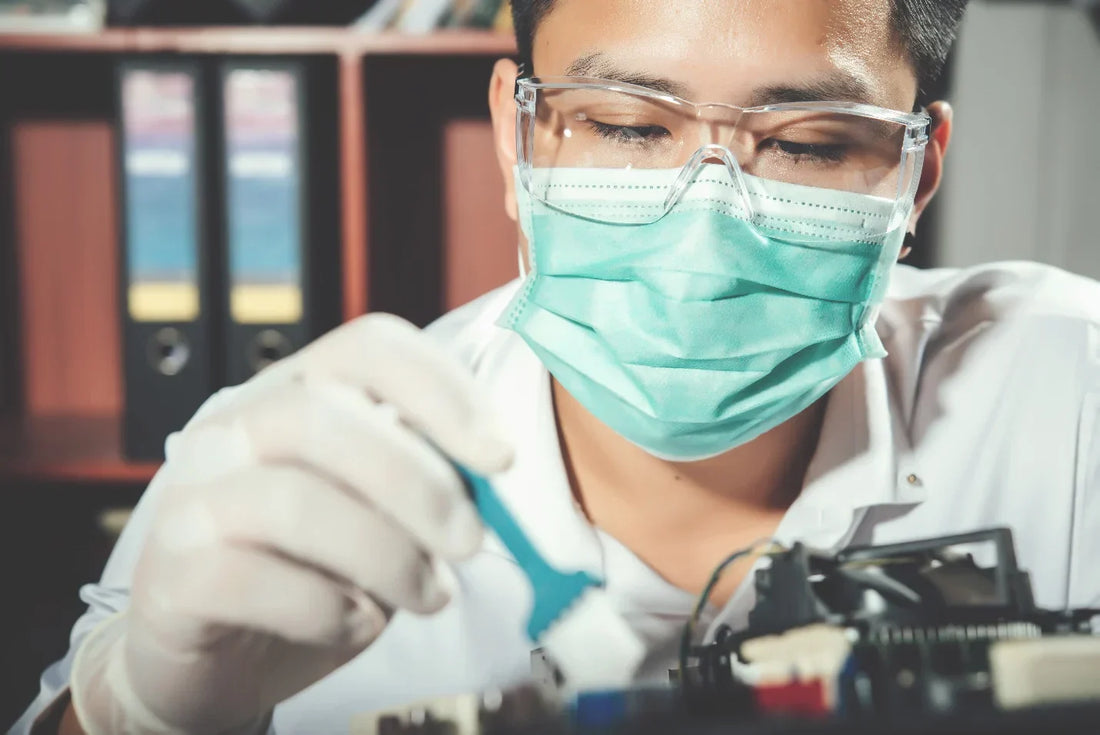How to Maintain Your Undercounter Lab Refrigerator for Years

Summary
Proper maintenance is essential for keeping your laboratory refrigerator in optimal working condition. Even the most minor issues can cause strain on your equipment's performance, leading to component failure and ultimately, the breakdown of your equipment. This article examines common lab refrigerator issues and guides how to resolve them.
Introduction
Your undercounter lab refrigerator is designed for the long-term, reliable storage of temperature-sensitive samples. But like any critical piece of laboratory equipment, it requires regular maintenance to ensure consistent performance, reliability, and longevity.
Neglecting maintenance can lead to equipment failure, sample loss, and costly downtime, all of which are detrimental to the success of your business. Luckily, a simple preventive maintenance routine can go a long way in preserving your equipment and ensuring scientific success.
In this guide, R&D Laboratory Equipment experts explore daily, weekly, monthly, and long-term maintenance practices to keep your refrigerator running optimally for years to come.
Understanding Your Undercounter Lab Refrigerator
An undercounter lab refrigerator is a small lab freezer designed to fit beneath laboratory countertops and benches. These refrigerators are designed for storing essential lab materials such as temperature-sensitive samples and reagents at a precise and stable temperature. They typically operate between 2°C and 8°C, providing uniform cooling that ensures the safety and integrity of your samples.
Key Features
-
Compact Design: These refrigerators are designed to fit under countertops, maximizing space usage in your laboratory.
-
Temperature Control: These refrigerators maintain a stable and uniform temperature range, which is essential for preserving lab materials and achieving scientific success.
-
Specialized Features: These refrigerators offer adjustable shelves and guardrails to help organize lab supplies. Some of them may also have access ports for temperature monitoring or be designed as an explosion-proof storage for flammable substances.
Daily Maintenance Tips
Daily maintenance is crucial for ensuring optimal performance and minimizing downtime in an undercounter laboratory refrigerator. Prioritize daily cleaning and inspections to ensure your equipment stays safe and operational.
-
Cleaning: Using a mild cleaner and soft cloth, wipe down the exterior and interior of the refrigerator to maintain its appearance and hygiene. Also, clean up any spills promptly to prevent contamination or corrosion.
-
Inspect Door Seals and Gaskets: Check door seals and gaskets for signs of wear, cracks, or ice buildup. Damaged seals can allow warm air to enter, compromising temperature stability and leading to ice buildup or increased energy consumption.
-
Monitor Temperature: Ensure that the temperature remains within the required range for your samples. Log all readings to ensure compliance with laboratory protocols and detect any temperature fluctuations that may occur.
-
Ensure Proper Airflow: Avoid overloading the refrigerator to ensure sufficient space for proper air circulation. Also, check the vents and ensure that the air circulation pathways in the unit are unobstructed, as this can affect airflow and temperature regulation.
-
Listen for Unusual Noises: Your lab refrigerator should operate silently. Pay attention to the slightest sounds, such as grinding, rattling, and buzzing, as they may indicate a problem with the compressor or fans.
Weekly Maintenance Best Practices

In addition to daily maintenance, a weekly routine will help ensure better equipment performance and reduce costly repairs and replacements.
-
Check for Ice or Frost Buildup: Regularly check for signs of frost or ice buildup around door seals. Follow the manufacturer’s recommendations for defrosting. If this is not promptly addressed, it can potentially lead to increased energy consumption, reduced temperature control, and even damage to your equipment.
-
Inspect and Clean Air Vents: Dirty and clogged vents will force your refrigerator to work harder, straining key components such as the compressor, fans, condenser, and evaporator.
-
Inspect Electrical Connections and Power Cords: Check for signs of frayed or cracked cords, as they can lead to overheating, arcing, fire, shock, and damage to equipment. Loose connections can also lead to power interruptions, which can affect temperature control and sample integrity.
-
Reorganize Samples: Rotate and reorganize samples in your scientific refrigerator to allow for good air circulation. It can also impact temperature stability and the integrity of stored materials.
Monthly and Quarterly Maintenance Routines
Monthly and quarterly maintenance routines are time-based servicing tasks that help prevent breakdowns, extend equipment lifespan, reduce costs, and ensure regulatory compliance.
-
Clean the Condenser Coils: Your condenser coils play a crucial role in regulating and managing temperature. Over time, they accumulate dust and dirt, which reduces cooling efficiency. A dirty condenser also restricts airflow, forcing the compressor to work harder to remove heat, leading to higher energy bills and potentially system breakdown. Use a vacuum with a brush attachment to gently remove dust from the coils.
-
Check and Calibrate the Temperature Settings: Verify that the internal temperature matches the setpoint on your refrigerator’s controls. If there is a disparity in the settings, manually adjust them to maintain precise temperature control or have a technician recalibrate your settings. Uncalibrated temperature settings can lead to sample degradation, inaccurate research results, and increased costs.
-
Test Alarm Systems: Verify that alarm systems for high and low temperatures, as well as open-door alerts, are functioning correctly. If your alarm system fails to alert personnel to temperature changes or power outages, vital samples will get compromised, leading to wasted resources and costly downtime. A faulty alarm also creates a false sense of security in the laboratory, masking issues that could damage your equipment or cause harm to personnel.
-
Review Maintenance Logs: Review daily, weekly, and monthly maintenance logs to identify recurring issues that may affect the performance and lifespan of your equipment.
Long-Term Maintenance Strategies
Apart from daily, weekly, and monthly maintenance tasks, there are specific strategies that can help ensure your small lab freezer operates optimally for years to come. Some of them include:
-
Scheduling Professional Servicing and Inspections: Schedule biannual or annual servicing by a qualified technician. During these inspections, your technician will;
-
Check refrigerant levels and pressures
-
Inspect and lubricate fan motors
-
Test and verify electrical components
-
Identify and resolve early signs of component or equipment failure
These tasks will help restore the functionality of your equipment, preventing costly repairs and replacements, and ensuring regulatory compliance.
-
Replace Worn Components: Over time, most components in laboratory refrigerators will degrade, reducing their performance and causing additional strain on the equipment. You should check and replace key elements, including door gaskets, fan motors, compressors, condensers, evaporators, and temperature sensors.
-
Upgrade Monitoring Systems: Verify the functionality of your monitoring systems, including alarms and temperature sensors, to ensure optimal performance. These systems provide accurate readings, real-time alerts, and comprehensive data, necessary for scientific research and regulatory audits.
Common Issues and Troubleshooting Tips

Even with regular maintenance, your undercounter lab refrigerator can still encounter issues, whether due to improper handling or an electrical surge. Knowing how to identify and resolve these issues can help you prevent costly downtime, repairs, and protect the integrity of your samples.
Temperature Issues
Common scientific refrigerator temperature issues include inconsistent or fluctuating readings, as well as samples freezing or not cooling properly. These issues can be caused by poor airflow, worn or cracked door seals, overloaded shelves, or a faulty thermostat.
Troubleshooting Tips
-
Inspect door seals for cracks or damage. Replace if necessary.
-
Dust and clean the condenser coil to ensure proper cooling.
-
Avoid overcrowding and make sure the vents are not blocked.
-
Ensure your thermostat is set to the proper temperature.
Frost Buildup
If you notice frost inside the refrigerator or near the door, it may be a result of the door not closing properly, a damaged door gasket, or a drain blockage.
Troubleshooting Tips
-
Defrost regularly to prevent it from affecting airflow and cooling.
-
Ensure your door seals are tightly sealed to prevent moisture from getting in.
-
Replace gaskets as worn gaskets can cause leaks.
-
Check and clear the defrost drain if you notice water pooling.
Electrical Problems
If your equipment is not turning on or you notice flickering lights, there’s probably a problem with your electrical connections.
Troubleshooting Tips
-
Check your power source. Ensure the unit is plugged in and the outlet is working.
-
Check your electric panel for tripped circuit breakers. Reset if necessary.
-
If problems persist, consult a qualified electrician for assistance.
Unusual Noises
Laboratory refrigerators such as ultra-low temperature freezers and undercounter lab refrigerators should operate quietly. If you notice a buzzing, grinding, or sparking sound, it is a sign of a serious issue. It can be caused by a faulty fan motor, loose panels or components, or obstructions in the condenser area.
Troubleshooting Tips
-
Listen carefully to locate the source of the noise.
-
Turn off the unit and check for obstructions in the fan and coil.
-
Check for and tighten loose panels.
-
Contact a certified technician to conduct a thorough inspection.
Conclusion
Proper care and maintenance are crucial for ensuring the optimal performance and longevity of your undercounter lab refrigerator. Incorporating daily, weekly, and monthly maintenance practices will not only enhance productivity but also reduce downtime, repair costs, ensure compliance, and support scientific success.
At R&D Laboratory Equipment, we offer used lab freezers for sale and provide comprehensive maintenance and training to ensure your equipment lasts longer and operates at optimal levels for years to come. Contact our representatives for more maintenance tips.
FAQs
1. What is the care and maintenance of a laboratory refrigerator?
Carry out regular cleaning both inside and out with lukewarm water and a mild detergent solution.
2. How can I prolong the life of my refrigerator?
Incorporate daily, weekly, monthly, and long-term maintenance to reduce performance issues and costly repairs.
3. How do you store a refrigerator in the long term?
Switch off the refrigerator, clean and disinfect every surface, ensure the equipment is completely dry, and move it carefully to the storage area, ensuring the refrigerator remains upright at all times.
4. How do you maintain a refrigerator when not in use?
Unplug your fridge from the outlet and ensure you remove all the moisture from the storage area.
5. What is the proper maintenance of a refrigerator?
Regularly clean the inside and outside with a mild detergent. Wipe down shelves and doors. Check the seals on the doors. Vacuum the coils on the back.
6. What are the disadvantages of refrigerators in a laboratory?
Temperature instability, low-quality interior materials, and a lack of monitoring systems in case of power outages are some of the disadvantages of lab refrigerators.
7. What shortens the life of a refrigerator?
Lack of regular maintenance is the main reason for laboratory refrigerator failure.
8. Can a refrigerator last 20 years?
Most refrigerators last 10-20 years, but this duration depends on the brand type and the level of care provided.
9. What happens if a fridge is not used for a long time?
Mold and mildew can grow inside due to the presence of leftover moisture. The lack of usage can also put your refrigerant and compressor in a bad state.
10. How many years should you keep a refrigerator?
According to the U.S. Department of Energy, refrigerators last approximately 12 years.






